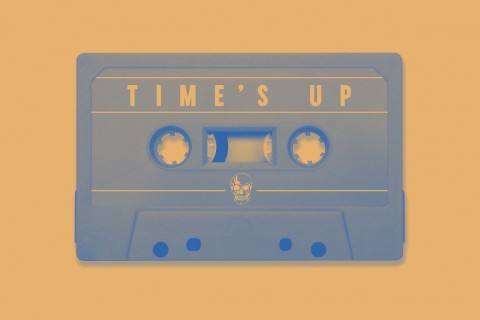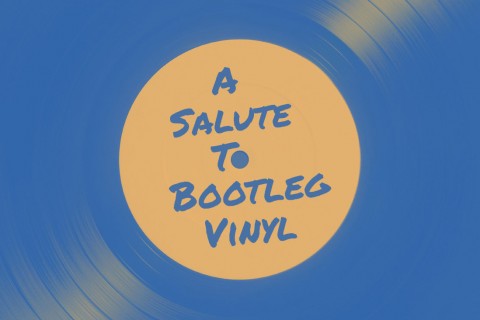
De La Soul have been campaigning to have their extensive back-catalogue made available digitally for some time now, yet their seminal first three albums remain relegated to the now ancient artefacts that are records, tapes, and compact discs. As a result, the only way for rap fans born in the past 30 years to enjoy the wacky audio antics of Posdunous, Yogurt Spelled Backwards, and Mase is to either order an old copy from Amazon and locate a computer still capable of ripping CDs or… download their entire discography for Free Ninety-Nine. As a matter of fact, Plug’s One, Two, and Three actually encouraged taking the latter approach in February of 2014 to mark the 25th anniversary of 3 Feet High…And Rising, uploading the first six albums from their discography to their website and encouraging fans to download it for free over a period of 25 hours on Valentine’s Day.
Pos explained the frustrating situation to Rolling Stone: ‘We’ve been blessed to be in the Library of Congress, but we can’t even have our music on iTunes.’ A New York Times feature from earlier this week explores the situation in more detail, reasoning that the extensive use of samples (some of which remain uncleared to this day) has led to the De La Soul albums controlled by Warner Music to have been relegated into the ‘too hard basket’, thus denying the group the chance to earn either digital royalties or have these highly influential records re-issued as collectable box sets. Beyond that, it also means that new listeners who want to explore the joys of nineties rap are limited to Youtube streams in order to check out old De La music, rather than stumbling across it on a Spotify playlist or iTunes recommendation.
With the introduction of Youtube’s subscriber-based Red service and an increased vigilance to reduce music piracy, it’s more than likely the current methods available to access the Long Island trio’s old tunes digitally (downloading from a bootleg music blog and listening to Youtube album uploads) will no longer be available at some point in the not-too-distant future, which will force students of classic rap to *gasp* have to track down old physical copies. Those too stupid and/or lazy to resort to such methods will therefore never experience the aural delights of ‘Afro Connections At Hi-5’, ‘Breakadawn’, or, to a far lesser extent, ‘De La Orgee’.
This raises the larger issue of how digital music distribution and streaming services are already shaping listening habits, in much the same way as radio and music video channels once did. Unbelievable as it may seem, there are a number of people in the world who enjoy music but don’t care about the who, what, and why of its creation, nor what came before. Sometimes I can’t help but envy these folk, who are perfectly content to simply enjoy whatever music is rapidly destroying their fragile eardrums at a bar or bop along to the Top 40 on commercial radio. It must be truly liberating to not spend one’s days trawling through emails sent by publicists and aspiring rappers in the hope of finding some new rap that fits into my exceedingly narrow window of acceptability, or simply be able to throw on the radio in the car and be perfectly satisfied with whatever blares out. Le sigh.
The real question here is what effect this will have to the curation of music in the future. While I enjoy many aspects of the Spotify experience, every public playlist that I’ve put together to collect the highlights from a particular rapper’s career is marred by all of the material that’s not available due to the record company no longer existing (such as Wild Pitch or Loud) or some kind of music publishing fuckery. This is why early works from The Beatnuts, Akinyele, and Main Source aren’t available digitally, contributing to why I still can’t abandon my records, CDs, and hard drive of MP3s, as much as I would like to.
Spare a thought for those who pay for subscriptions to Apple Music, Spotify, or Tidal and rely on them as their sole sources of music at home and when out and about. Anything that’s not available through these channels is therefore relegated to the memory of people who still collect physical media and thus written out of history for a sizeable chunk of the population who don’t have the slightest inclination to trawl Discogs in their free time. Does it then become the responsibility of music ‘journalists’/bloggers/hacks to remind music fans how great and important groups like De La Soul were when they first hit the scene, and hope that the article inspires a teenager to order a second-hand copy of De La Soul Is Dead from Amazon Prime?
In some ways it’s no different than the challenges that have faced music fans since recorded music became available to take home and listen to on the gramophone. Certain songs and albums go out of print and become sought-after by collectors, while others seem to live forever in constant rotation on ‘classic hits’ radio stations. Those who actually give a crap about what they’re listening to will still be able to track down these great albums in one form or another, even if they have to resort to restoring a 30-year-old Sony Walkman. The only real losers here will remain the guys and gals who actually created the music, which follows in line with the way the record industry has operated for the past century.



